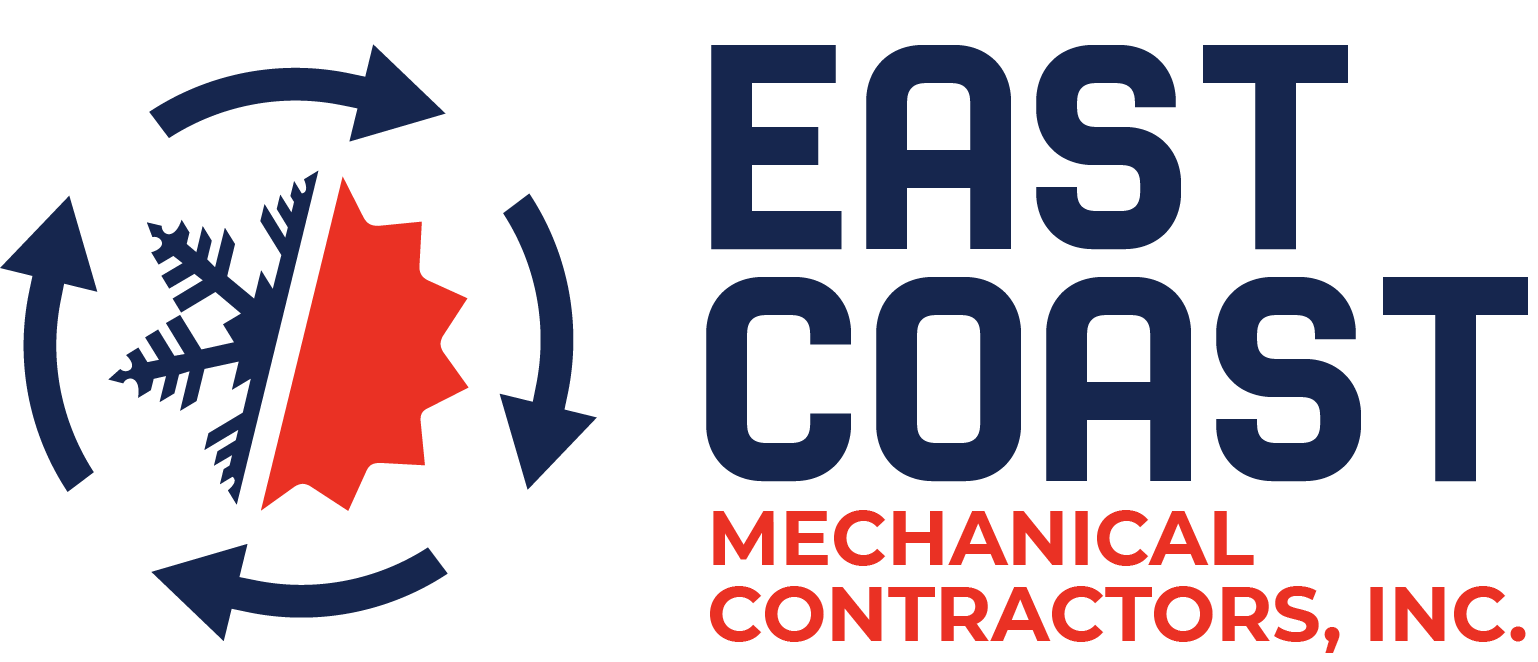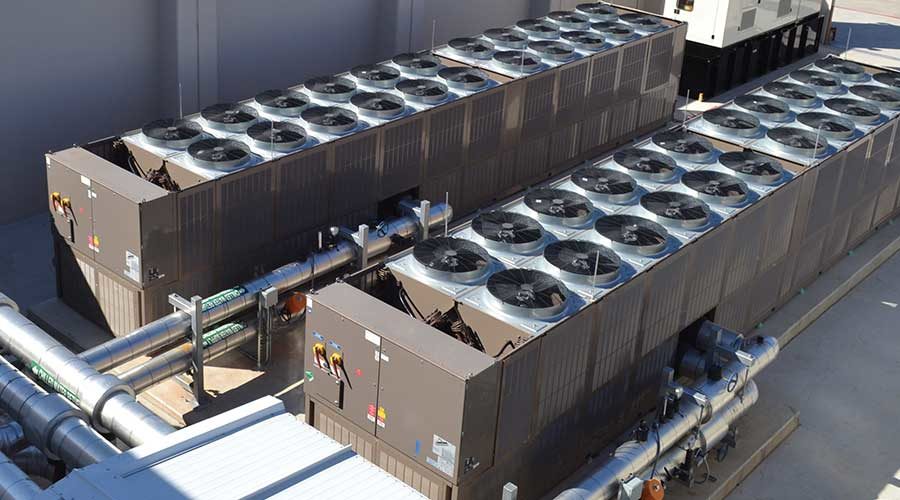Air-conditioning systems for data centers are designed for year-round cooling with very high cooling intensity per square foot of floor area. The high sensitivity of electronic components in such facilities requires that temperature, humidity, air movement and air cleanliness must be kept consistent and within specific limits to prevent premature equipment failures and costly downtime. Because data centers are high-density enclosed spaces that generate a significant amount of heat, traditional comfort cooling systems can’t remove enough heat to protect the critical equipment. Instead, these unique areas require dedicated units with precision cooling capabilities.
HVAC COOLING SYSTEMS FOR DATA CENTERS
In a typical data center environment for example, the heat densities can be up to five times higher than in a typical office setting. To illustrate, one ton of comfort cooling capacity (12,000 BTU/hour, or 3,517 W) is required per 250 to 300 square feet of office space. This translates into 12 to 14 watts per square foot. In contrast, one ton of precision cooling capacity is required per 50 to 100 square feet of data center space, which translates to 35 to 70 watts per square foot on average. New data centers today have load densities as high as 200 to 300 watts per square foot. From an airflow standpoint, precision cooling equipment typically supply between 500 and 900 cubic feet per minute (CFM) per cooling ton. This contrasts with the much smaller range of 350 to 400 CFM per cooling ton typically delivered by comfort cooling equipment.
Corporate Data Centers
Data centers (also referred to as server rooms or IT rooms) are the building blocks of any business organization providing capabilities of centralized storage, backups, management, networking and dissemination of data. Data centers fall into two major categories: corporate data centers (CDCs) and Internet data centers (IDCs).
Corporate data centers are owned and operated by private organizations, institutions or government agencies that are critically dependent upon information and communication technology systems. Their prime purpose is to support data processing and web-oriented services for their self-use.
Internet data centers
Internet data centers are primarily owned and operated by third party service providers or by commercial operators. Their primary objective is to provide IT services to their clients and the customers on rent with or without IT hardware while sharing common power, cooling and facilities infrastructure.
The services may include but are not limited to wide-area communications, fast and reliable internet access, web or application hosting, server rent out, backup storage facilities, content distribution and load sharing with new variations appearing almost daily. This kind of facility benefits large companies like banking, stock exchanges, travel, insurance and other service providers who need backup servers for business operations and to cover business risks. Small and medium scale companies also benefit, both monetary and ensuring goodwill.
Data center needs
Data centers can easily be recognized by equipment racks that contain servers, storage devices, network cabling and equipment. The most critical of these elements are the rack structures housing IT equipment. Another critical part of a data center architecture is the utility infrastructure like power supplies, air conditioning, fire suppression and other security devices. There are three functional requirements of a data center:
- Data center space planning for locating servers, storage and network devices
- Electric supplies and network connectivity are provided to other devices both inside and out.
- Temperature/Humidity control environment within the parameters needed.
HVAC COOLING SYSTEMS FOR DATA CENTERS
Ensure that the data center is not located below any room that could cause water or moisture to leak into the data center. Exclude plumbing from the room, except plumbing that supports the fire suppression and heating, ventilation, and air conditioning (HVAC) systems. To prevent air and moisture leakage, do not install windows that open to the outside of the facility. Ensure that the data center has the required air conditioning equipment to adequately cool the systems. Install an automatic alarm system to notify personnel if temperature or humidity exceeds the specified thresholds.
Contact us
If you have HVAC needs for data centers, join hands with a licensed and insured contractor at East Coast Mechanical. Email: ecmcecmc@aol.com Address: 5133 W Hurley Pond Rd Suite A, Wall Township, NJ 07727 Hours: Monday to Friday 8 AM to 5 PM and Closed Saturday and Sunday.

